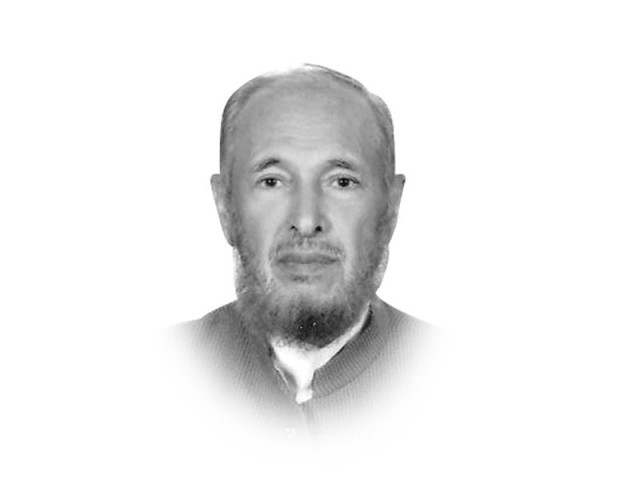Crackdown on militant outfits
Time has come for a deep introspection and an agonising reappraisal of policy

The writer is a former chief secretary of K-P and a former ambassador
Why has the nation tolerated a situation in which militant groups are allowed to operate freely often at the expense of the country’s larger interests?
There are many reasons for it: Firstly, institutions have not been allowed to take roots. There has been no pressure of institutions on the government to dispassionately weigh the pros and cons of permitting groups that use the country’s territory to seek political goals in other countries. Secondly, parliament, the supreme institution, has had very little to do with policies in the realm of internal security or foreign policy of the country. Such issues are considered to be beyond the collective wisdom of elected representatives. Thirdly, media has, by and large, chosen to go along with the dominant narrative that excludes any objective appraisal of policy in sectors like presence of parties or groups which have agendas in other countries.
After all what is it that parties like the Jamat-ud-Dawaa, Lashkar-e-Taiba and Jaish-e-Muhammad have contributed to the state other than helping to brand Pakistan as a supporter of terrorism?
Has that reputation helped?
Such is the sweep and outreach of some of these groups that one of these, namely Jaish-e-Muhammad, nearly brought two nuclear-armed South Asian countries to the brink of war in the last week of February. Should Pakistan be hostage to the whims, ambitions and bigoted, paranoid ideologies of misguided militant groups?
There has been some review of the policy, and certain steps have been taken to restrict the groups involved in activities that are clearly in conflict with the country’s security. But if past experience is any guide, these efforts may only last for a few weeks or months and we will be back to square one, as the dust settles down on Pulwama incident.
And then should a country wait for a Pulwama to happen to strike at the bases or headquarters of organisations that are known to be engaged in clandestine activities which are harmful to the state?
Time has come for a deep introspection and an agonising reappraisal of policy. This reappraisal must incorporate the following objective realities:
It is inconceivable that Kashmir could ever become an independent state. Any such notion ignores the fact that a country of the size and military prowess of India would never retreat in the face of a few thousand volunteers. More importantly, the secession of Kashmir would give a fillip and motivation to other states clamouring for autonomy. An irretrievable movement for disintegration of The Indian union would be triggered off that would have terrible implications for peace in south Asia. Would that be in Pakistan’s interests?
Equally importantly is the admission that the current situation is unsustainable. Kashmiris have risen against the authority of the state. There has to be out-of-the-box thinking on how to confer more autonomy on the state that would meet the expectations of the people.
In this endeavour, Pakistan can play a role by maintaining strict neutrality and ensuring that no cross-border movement takes place that hinders the progress of the political negotiations.
Pakistan must rid itself of the fantasy of an ‘incomplete Pakistan without Kashmir’. Kashmir was not part of India at the time of the partition; it was a princely state and had the option to join either India or Pakistan. Its Hindu ruler acceded to India.
The continuing stalemate, the obstinacy of the present Indian rulers not to seek a negotiated settlement, the atrocities being committed every day have created an environment of deep hostility, anger and acrimony. Not only are the people of the occupied valley suffering on a daily basis but the people of both India and Pakistan are being made to suffer. And this pain and suffering has gone on for 70 years now.
No other dispute in the world has affected lives of 1.5 billion people for so long, no other resolution of a dispute between two countries holds such promise of progress and prosperity. But the arbiters of the destiny of Kashmir are the people themselves. Short of independence any arrangement that would reflect the aspirations of the people should be acceptable.
Published in The Express Tribune, April 9th, 2019.
Like Opinion & Editorial on Facebook, follow @ETOpEd on Twitter to receive all updates on all our daily pieces.















COMMENTS
Comments are moderated and generally will be posted if they are on-topic and not abusive.
For more information, please see our Comments FAQ